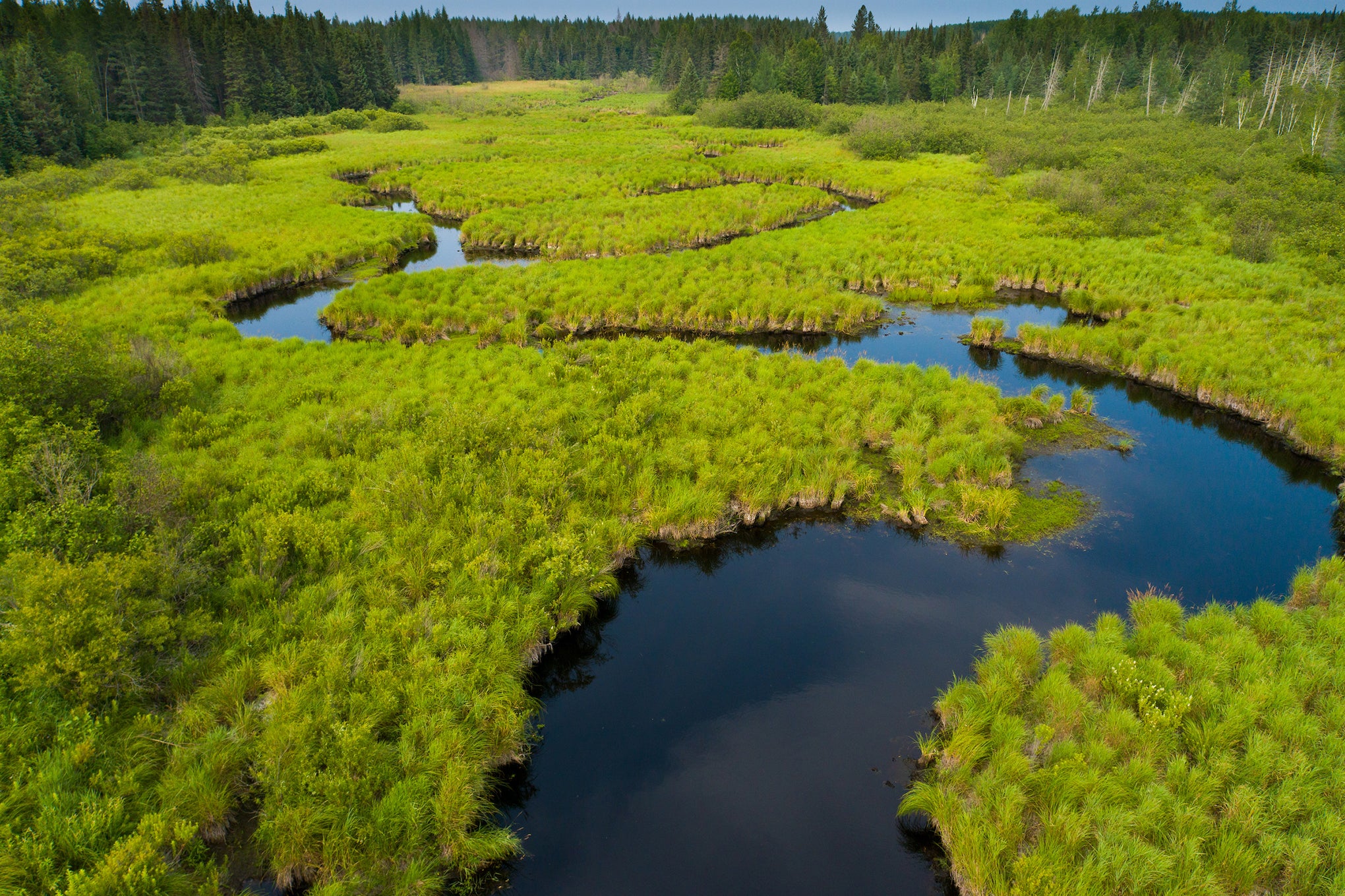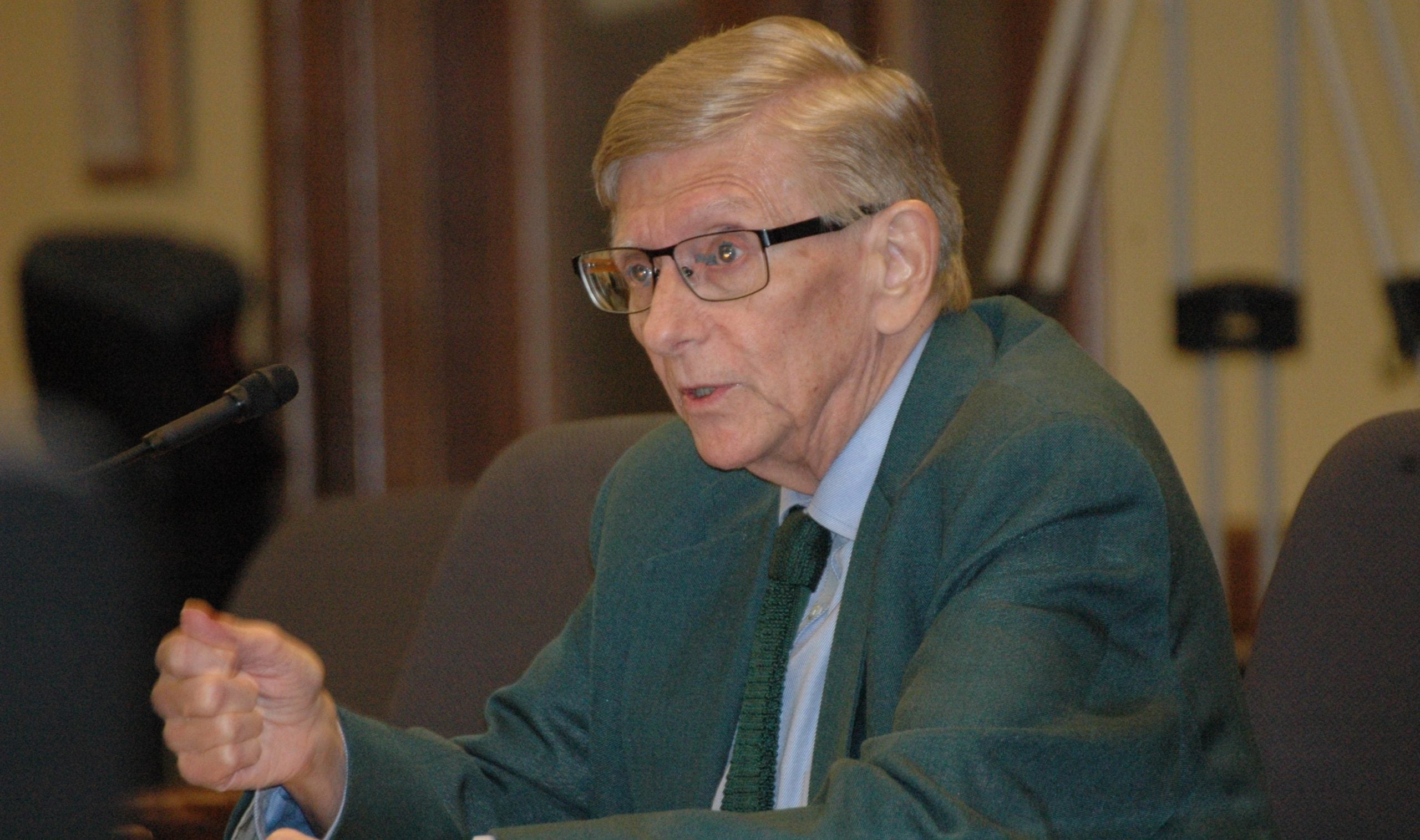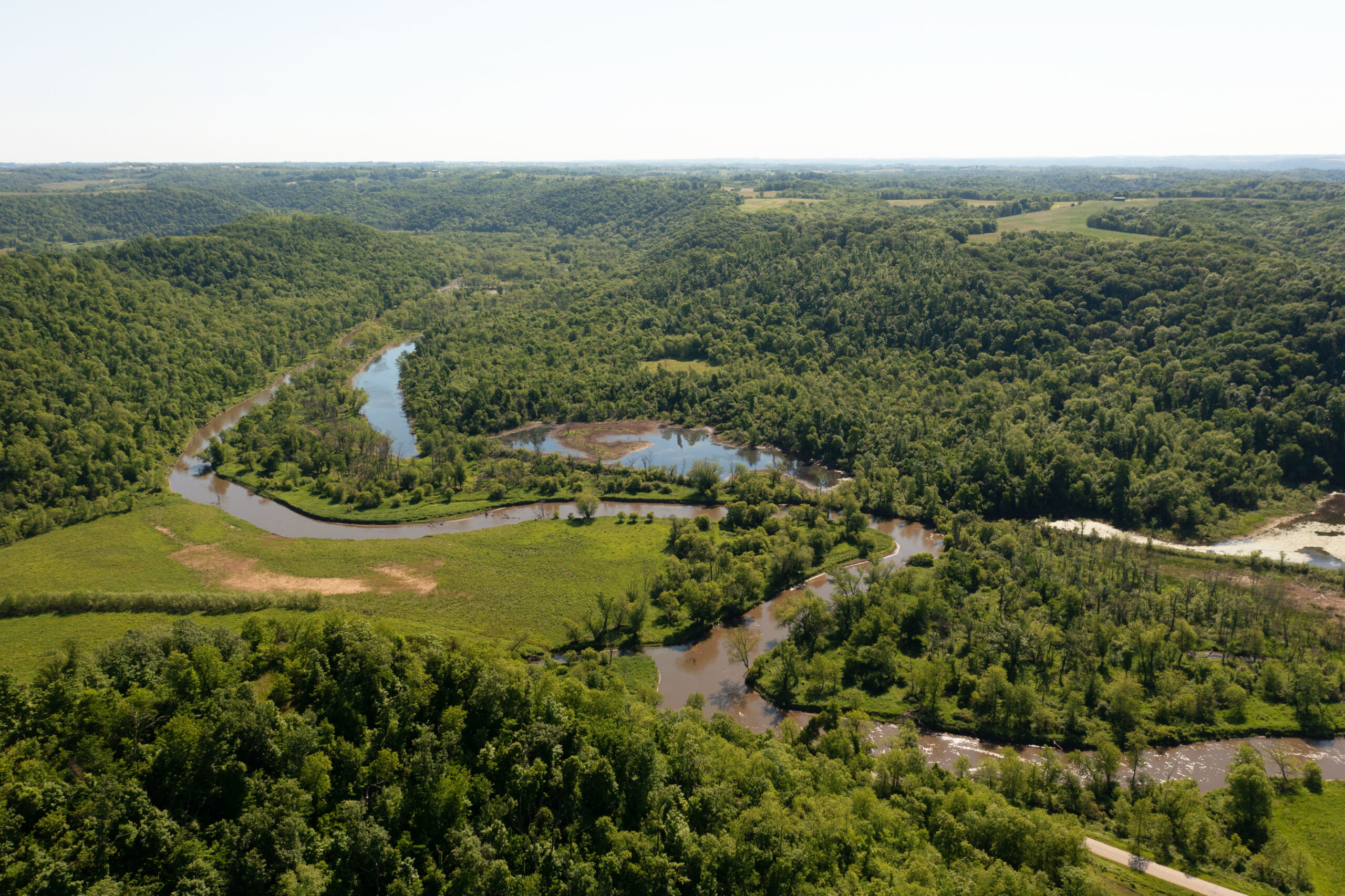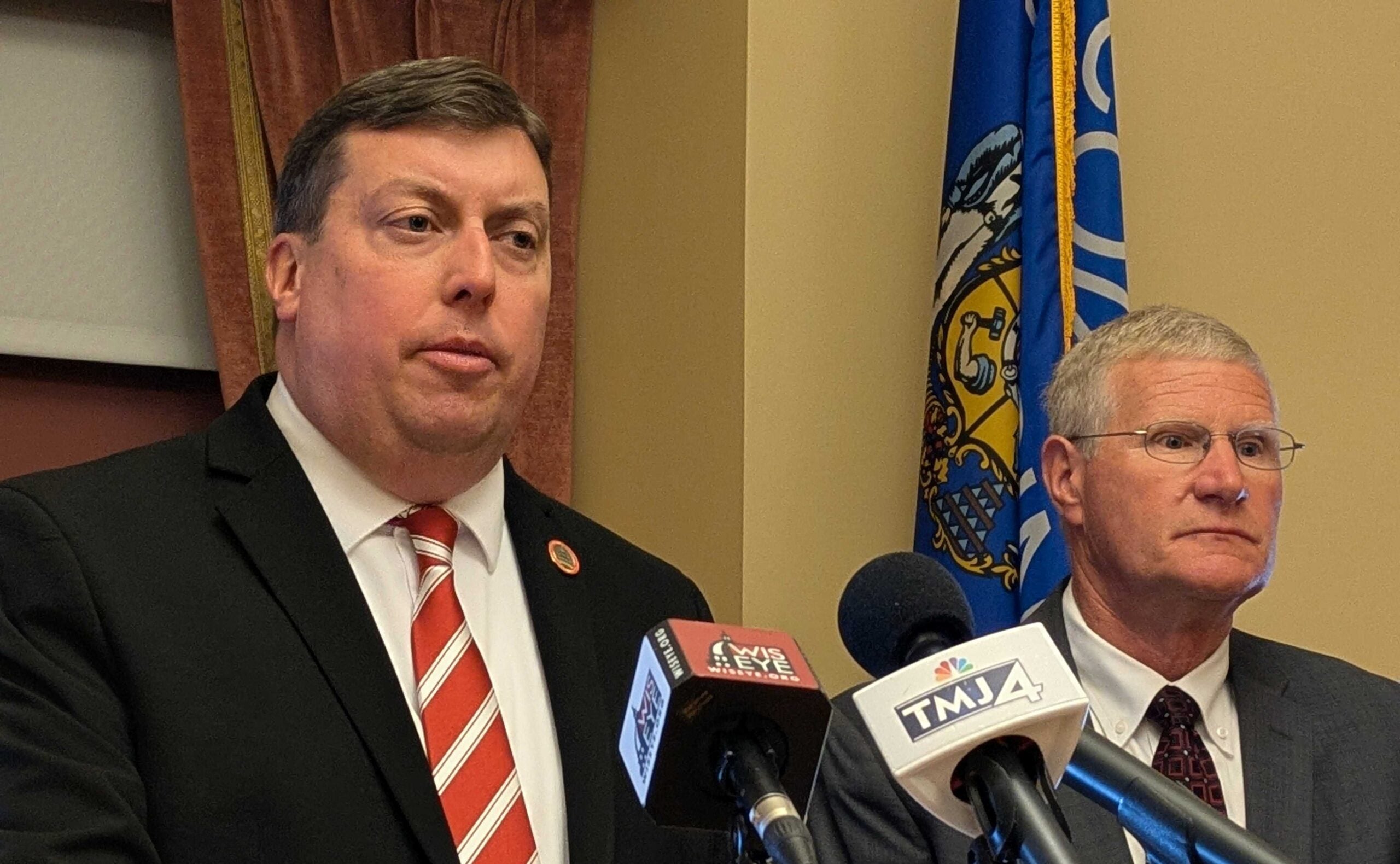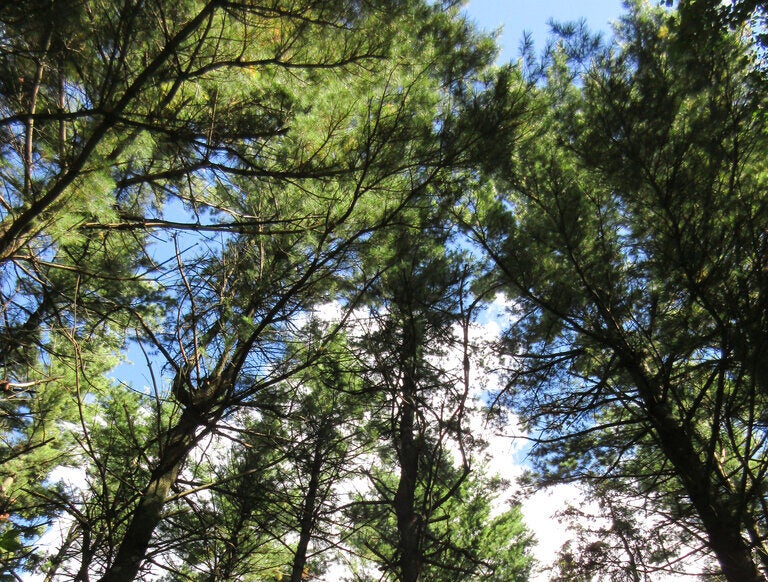The head of the Wisconsin Department of Natural Resources said the agency will more closely examine its internal review process for proposals under the state’s land acquisition program. The move comes after lawmakers objected to what was slated to become the state’s largest land conservation project.
Lawmakers on the Joint Committee on Finance objected to using $4 million under the Knowles-Nelson Stewardship Program for a conservation easement on the Pelican River Forest, according to Republican state Sen. Mary Felzkowski of Irma. She’s the only person on the committee to publicly voice her concerns about the project’s potential effects on the local tax base and development.
The forest is a land protection effort by The Conservation Fund. In 2021, the national conservation group bought 70,000 acres of private forestland in northern Wisconsin with the intent of setting it aside for recreational use and logging. The group has been working with the DNR to secure easements for the property east of Rhinelander. Last fall, the Wisconsin Natural Resources Board signed off on a $15.5 million easement to preserve more than 56,000 acres of the forest. The bulk of the project is funded by a $10.8 million federal grant.
News with a little more humanity
WPR’s “Wisconsin Today” newsletter keeps you connected to the state you love without feeling overwhelmed. No paywall. No agenda. No corporate filter.
DNR Secretary Adam Payne said Wednesday he only recently became aware of town resolutions opposing the Pelican River Forest. He said there was a breakdown in agency communication that meant the Natural Resources Board was unaware of local opposition prior to approving the use of Stewardship funds.
“Everyone is striving to do the best they can. There was no intention of not forwarding on some information. They’re sharing two resolutions,” Payne said. “It was simply an oversight.”
Payne, who has yet to be confirmed by the Senate, said the DNR will be reaching out to local governments to ensure their questions and concerns with the project are addressed. Under state law, he noted the agency is only required to provide 30 days notice on such projects.
“You need to give at least 60 days to a local unit of government to effectively respond to a request for information,” Payne said.
Republican Rep. Mark Born of Beaver Dam, who co-chairs the Joint Committee on Finance, has previously said the DNR should put more effort into ensuring questions and concerns are addressed prior to bringing proposals before the Legislature. On Thursday, Born said in a statement that the agency “clearly botched” its handling of the Stewardship funding request for the Pelican River Forest.
“From failing to properly notify the county of the proposal to not providing opposing resolutions from local towns to the Natural Resources Board before they considered the request,” Born said. “The failures of the department are simply unacceptable and highlight the importance of the Joint Committee on Finance’s role in protecting our local communities and taxpayer resources.”
Fellow co-chair Republican state Sen. Howard Marklein, R-Spring Green, declined to comment Thursday on the Pelican River Forest.
The future of the project remains unclear as the committee has yet to schedule a hearing on lawmakers’ objection to the proposed use of Stewardship funding. Gov. Tony Evers and conservation groups have called for increased transparency around the Legislature’s review of Stewardship projects under the next two-year state budget. Evers wants to eliminate lawmakers’ ability to raise anonymous objections on that committee.
Felzkowski has said she’s not opposed to the state’s land acquisition program, but she objected to taking land up north off the tax rolls.
The Conservation Fund has said the forest’s 70,000 acres would remain in private ownership and continue to contribute around $73,000 in taxes each year.
The project is at risk of losing funding without action from lawmakers. The DNR has said it may have to launch a fundraising campaign or seek a landowner donation to come up with funds to match the federal grant awarded for the easement. Still, Payne said he remains optimistic.
“I’m hopeful that there will be a path to see this forward,” Payne said.
Since 2015, the DNR has said 19 projects north of Highway 64 have gone to the Joint Committee on Finance for their approval and five have yielded objections. Those projects were ultimately paid for through alternative funding sources.
Board seeks ‘adequate funding’ to maintain habitats, lands
On Thursday, the NRB also unanimously approved a resolution that asks lawmakers to provide adequate funding for managing habitat and facilities on public lands.
Board member Greg Kazmierski first mentioned his concerns about funding in February. He questioned whether the state has enough resources to manage wildlife habitat as properties have been added through the state’s Stewardship program. As of September, the DNR owned around 1.5 million acres of land.
“The people of this state are expecting us to take care of their public lands,” Kazmierski said. “And we’re just not giving the funding priority to that job.”
DNR Assistant Deputy Secretary Steven Little told the board in February that the funding devoted to habitat management has increased over the last decade from $7.1 million in 2011 to at least $11.2 million in 2022. He noted the funding allocated to habitat or wildlife management occurs outside the Stewardship Program.
The agency’s budget analyst has said the DNR set aside $107.5 million for the management of state lands in the current fiscal year. That doesn’t include federal funding sources.
Some Republican lawmakers have opposed adding more public lands in recent years because they argued those purchases create too much debt. A recent report from the Wisconsin Policy Forum noted debt payments from Stewardship borrowing are beginning to drop, but they remain above levels in the 1990s and early 2000s.
Secretary Payne highlighted that Wisconsin’s state park system is self-funded through user fees, but some of the money generate goes into accounts that cannot be used for maintenance under current state rules. There is money available in the state’s forestry and parks accounts, but a change in state statutes is required to allow the DNR to spend that additional revenue. Gov. Tony Evers’ budget would increase the agency’s spending authority to allow funding of maintenance and development projects.
“We have a real opportunity here to take better care of our state parks, our lands, our property,” Payne said. “I’m hopeful that some of that’s going to come out of this process.”
When asked about the resolution, Sen. Marklein said in a statement that lawmakers will build a budget after holding public hearings to gather input statewide.
“We are looking at all our options and will consider all spending as a part of the full budget plan, not as one-off ideas,” Marklein wrote. “Every agency must make their case for investments.”
Wisconsin Public Radio, © Copyright 2025, Board of Regents of the University of Wisconsin System and Wisconsin Educational Communications Board.

